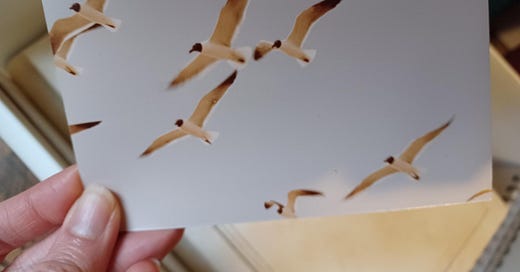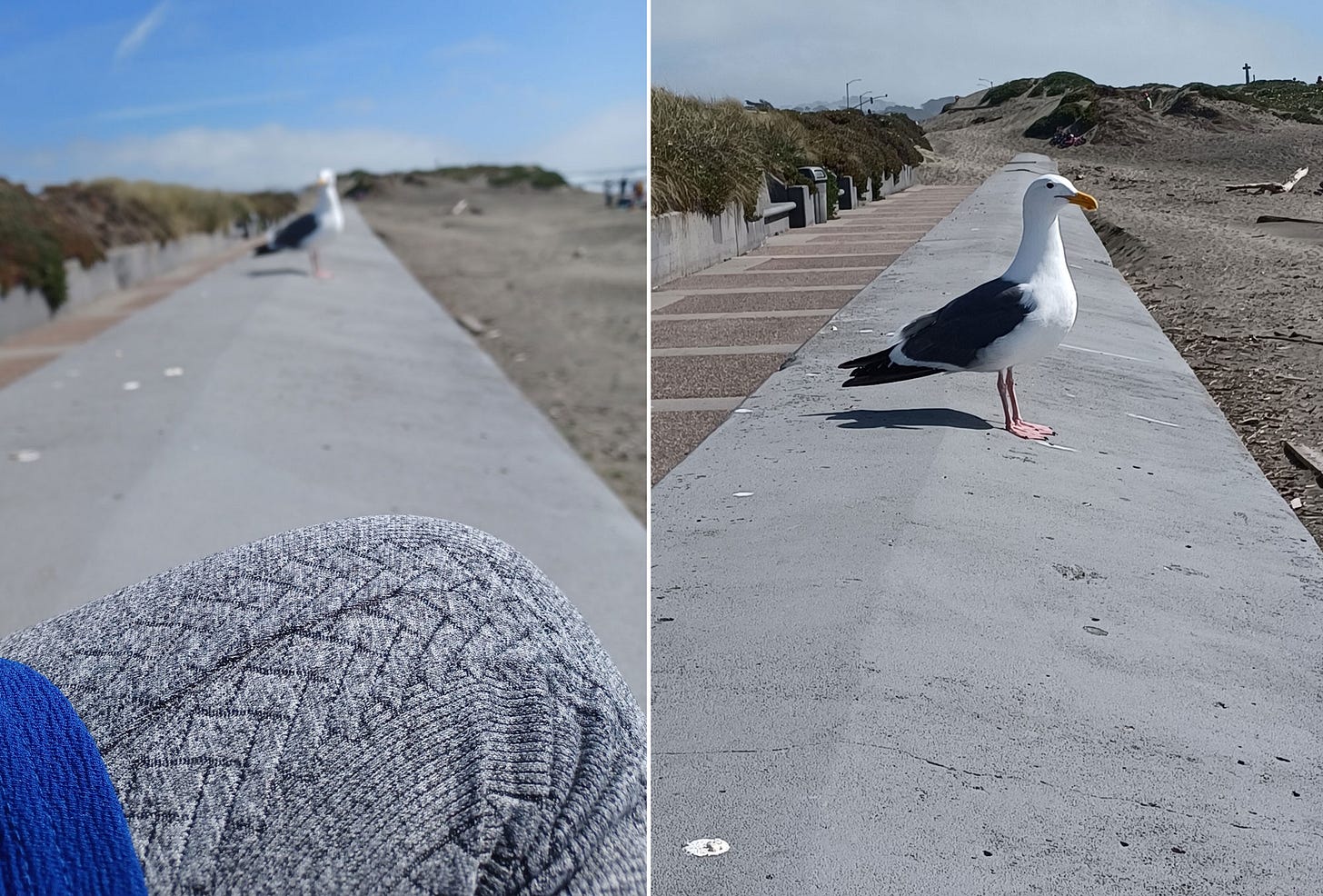Welcome to Wandering Grace. I will be sharing essays exploring the themes of place and (be)longing every other Thursday, and bonus snapshots from the road on alternating Sundays. Read more about the project here. See an archived list of essays in-order here.
Today’s essay draws stylistic inspiration from Elizabeth Crane’s memoir-in-fragments This Story Will Change, which I just finished re-reading.
Content warnings: refugee loss, displacement, migration, sinking ships and heavy shit, a quick mention of disordered eating.
I am staying with a friend Lea for the weekend (before heading up to a contemplative agrarian residency for a couple weeks). She has set up a cozy nook for me in the corner of her studio apartment near Lake Merritt, next to her full floor-to-ceiling bookshelves. I am self-conscious of the number of suitcases and bags I am hauling around, the unsightly clutter they add to her aesthetically-curated space.
***
[2023, Migration Tour, Oakland]
You have one grey suitcase and one small duffle bag full of clothes, one backpack that includes a laptop and notebooks and art supplies and toiletries, one Moth-podcast-branded tote bag purse stuffed with odds and ends, a smaller tote bag containing snacks and leftovers in tupperware, and a winter coat that has pockets full of winter accessory necessities.
As you move your suitcase and duffle bag and backpack and tote bag and smaller tote bag and winter coat from house to car, from car to studio apartment, from studio apartment to rideshare car, you pre-imagine shuffling everything from rideshare car to shuttle bus, from shuttle bus to waiting ramp, from waiting ramp to truck bed, from truck bed to bellweather trailer…and a panicky flutter provokes self-judgement which is really a fear of other people’s judgement of: I packed too much, of I have too much stuff.
***
I just really wish I could consolidate it down to four bags though. I’m a little worried about only having two free hands to carry all my bags at once. I might have to ditch all my snacks. I consider shipping some stuff back to Oregon. But I need the rain gear and the boots for Bellweather. I need the art supplies and notebooks for my Migration Tour.
There’s a part of me who feels shame for not being able to embody the minimalist, “carry-on only” aspirational travelers who I sometimes watch on YouTube. Somehow they never end up overstuffing their tote bags. You never see shots of them at the actual airport with extra plastic bags of food, juggling overflowing pockets, shoulder straps slipping.
***
This is the present-day pattern: whenever I feel uncertain or anxious, especially about my relationship to a place (this time activated by very last-minute confirmations of whether my next stop is actually a Go), it translates to anxiety about how much space I’m taking up in that place, that I might be taking up more than I am worth or owed or deserve, that the amount of stuff might be more trouble than it’s worth. And then I feel an urge to purge: To sort, to organize, to tidy, to get rid of more and more stuff.
Nevermind that it’s just one extra trip between car and room.
Nevermind that there’s usually always, nearly always, yes always, another set of hands that can help out with a bag or two.
***
Nevermind that others just hire moving trucks and movers.
Nevermind that others have bookshelves upon bookshelves of floor-to-ceiling books.
Nevermind that others rent storage spaces for inherited antique furniture and their bicycle collections and so many instruments.
***
[2017, Catsitting, San Francisco]
You have suitcases full of clothes and box after box after box after box after box of art supplies and books and bathroom stuff and more clothes and whatever else. You have your laptop in your backpack and a monitor and a keyboard for ergonomic set-up. You have a portfolio of artwork.
As you unload your boyfriend’s double-parked SUV and haul box after box up the elevator, through the hallways, down to the end of the hall to the corner apartment, front door propped open with the cats tucked away safely in the bedroom, you wonder if the neighbors think you are properly moving in, instead of just staying for a few weeks, a couple months — catsitting as stopgap housing between your last SF apartment and your impending move to Oregon come summertime.
It’s not until much later that you realize others go catsitting or subletting with only a suitcase or two at most. It’s not until much later that you consider the idea of putting most of your stuff in proper storage for that in-between season rather than treating the sublet *as* a storage unit between moves.
To be fair, it is only one SUV’s load of stuff.
It wouldn’t matter as much if what happened next didn’t happen.
***
Which is that the cat got sick inexplicably — and suddenly — something to do with his tail, and that your friend decides to move back in to take care of sick cat and that your friend blames you for not noticing cat was sick and that you lose your stopgap housing in an in-between season.
What happens next is that you alone have to then move out box after box after box after box after box of art supplies and books and bathroom stuff and more clothes and whatever else under the wary eye of your now-suspicious-of-you friend (who does not offer to help). When you fumble-drop a box near the bedroom with a clamor, you are sure that this gesture implicates you as a bad catsitter and a bad person, that this is proof in her eyes that you are definitely the person to blame for the cat’s injuries.
You have to wheel your suitcases out the front door and through the hallways and back down the elevator and into the double-parked SUV you’re borrowing from your boyfriend for the day, to then stick everything into his basement across the Bay for storage while you scramble to find new stopgap housing.
***
[2017, Catsitting, San Francisco]
What you didn’t bring in the first place:
You don’t have your bedframe or mattress (in a friend’s spare room which doubles as storage). You don’t have some of your other boxes of kitchen stuff or photo albums or whatever else (in your boyfriend’s basement). You don’t have your high school yearbooks or other photo albums (in your brother’s closets in another state). You don’t have your other art supplies and your other books (given away or thrown away this move).
You don’t have the large dark blue almost black scarf with the green trim that was your mom’s, a part of her work uniform that she never really wore because it never really got that cold in Houston, but which you think is really lovely, but that you also never really wear (donated this move because you were trying to downsize and you have decision fatigue by the end of it all and you don’t realize you’ll regret it later, so you make a choice based on function over sentiment).
***
In what ways is disordered packing similar to disordered eating?
The purging of stuff a compulsion, a catharsis, and/or an addiction.
What I can’t control is whether I will lose my house, or my home, or my sense of stability in where I live.
What I can control is how much stuff I carry, how much stuff I own. The less I have, the less help I need to ask for, the less of a burden me and my stuff will be to those around me. The less I have, the more nimble and adaptable I am, the more options I will have to choose from the next time (invariably) that I will lose the ground beneath my feet and have to scramble (again) for alternative perches for me and my stuff.
“People who don’t have an internal locus of self-trust create outer ideas of control because they think that will keep them safe.” (Glennon Doyle on her recovery from disordered eating, We Can Do Hard Things #182. “Lessons from Therapy”)
Because, Glennon says, it’s whatever our families of origin taught us would keep us safe because we were all steeped in dominant culture’s social orders that prescribe certain rules to follow for the sake of self-preservation and legacy.
***
My family of origin includes refugees on both sides. At least two generations of flight, from China to Vietnam, from Vietnam to America. Maybe more before that. (I do not know because you do not carry paper archives with you when you flee. I do not know because families of origin lose knowledge-keepers along the way to death. Or you lose their stories to trauma. I do not know because collective histories become patchy from uprootings, holey from being stretched too thin across diaspora.)
***
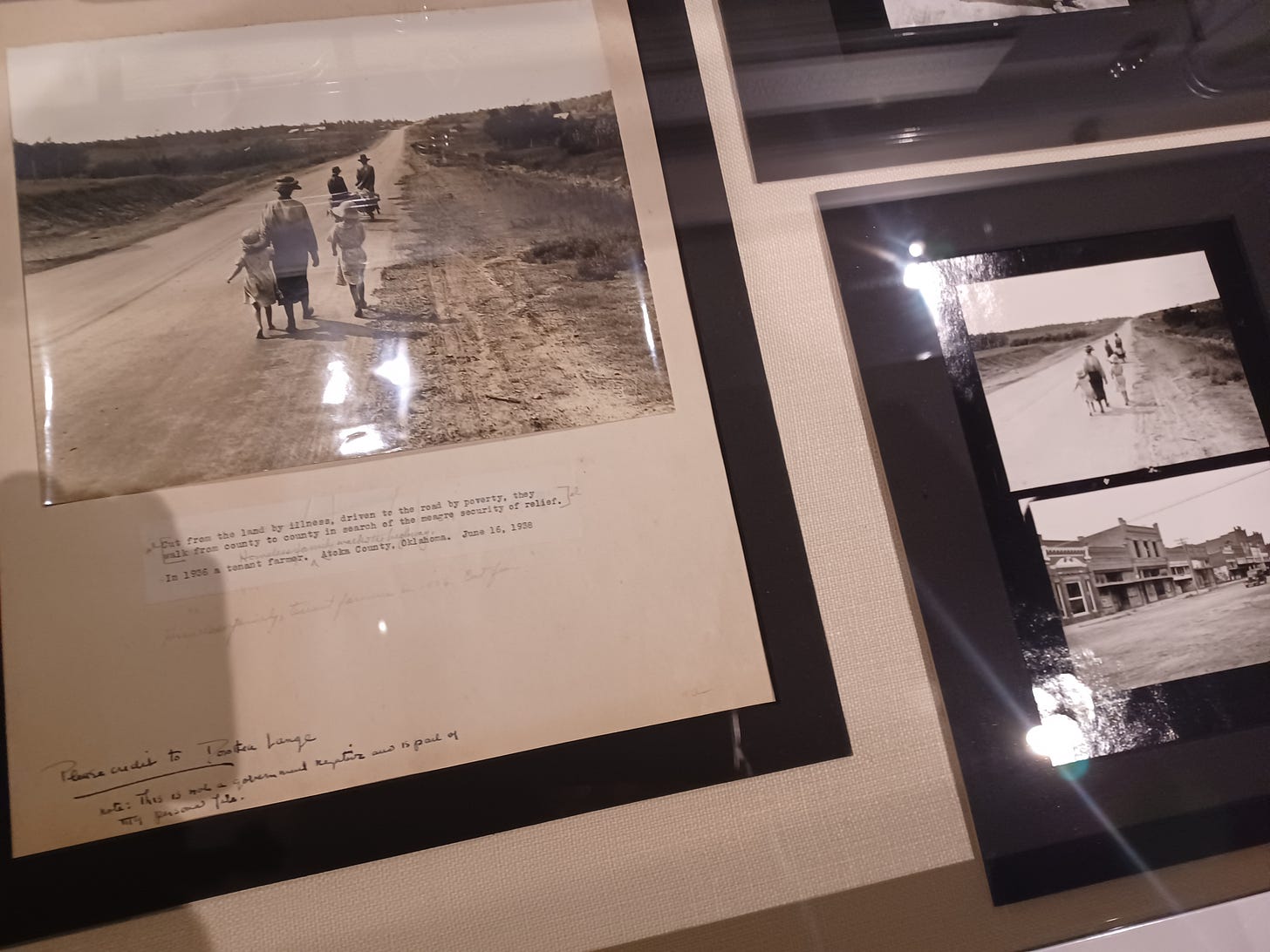
***
[1978, Fleeing Vietnam, South China Sea]
Your mom is 27.
She has two sets of clothing (兩頭衫)
some gold jewelry sewn into her hems,
some cash, some bits and pieces (濕濕碎碎)
whatever can fit inside a small bag that gets shoved into the bottom of the boat to weigh it down to prevent it from capsizing in the waves.
The boat sinks anyway.
***
[1978, Bidong Refugee Camp, Malaysia]
What she (no longer) has to carry.
an aunt and an uncle and their nine kids who were on the same boat
whatever fit inside that small bag that got shoved into the bottom of the boat
a house in Vietnam and her parents’ shop
a map of the world, as oriented to that neighborhood as home
whatever belongings — sentimental, functional, or otherwise — that she chose to leave behind with her parents, her siblings, those who would follow her lead in migration
two sets of clothing (兩頭衫)
bits and pieces all wet or drowned (濕, 失)
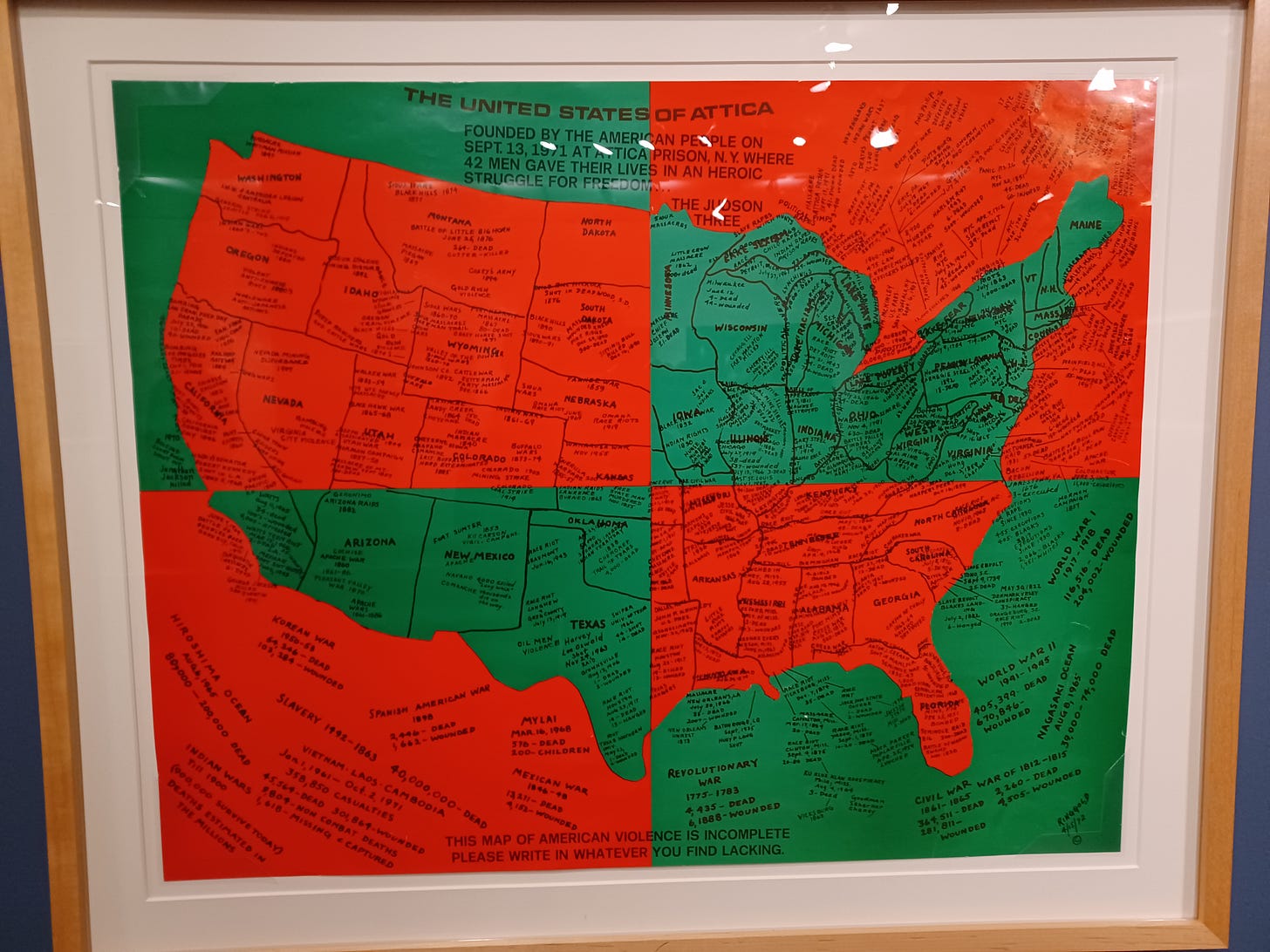
***
I am staying at Lea’s for the weekend, and I am looking at my grey suitcase and my small duffle bag and my Moth-podcast-branded tote bag, and my backpack, and my smaller tote bag of snacks. The self-help voices I have been listening to (Brene Brown, Michelle Elman, Dez Davis) worm their way into the sunshine to synthesize into fresh new insight.
If: the antidote to scarcity isn’t abundance but merely plenty aka a sense of enoughness…
If: the antidote to body self-criticism isn’t over-the-top self-love but merely neutrality and self-acceptance…
If: there is no ‘good’ or ‘bad’, merely what is…
If: nothing I do or don’t do can affect my inherent value…
Then: I don’t have “too much” stuff in a constant grasping for a mythical and never-achievable “right” amount of stuff. This is merely the amount of stuff I have today, this week, this trip.
No judgment.
This is the amount of stuff I’m carrying.
Neutral.
This is the amount of stuff I’m moving from place to place.
Fact.
It’s what I decided to pack. It’s what I decided I needed for this trip.
Therefore, I don’t have to change the amount of stuff I’m carrying around with me.
It feels like an epiphany because I feel lighter.
Because I can shift my focus and energy away from my anxiety and back into the present, back to the journey at hand.
Because I’ve found an antidote for a thought spiral I didn’t even realize I was carrying around like so much baggage.
***
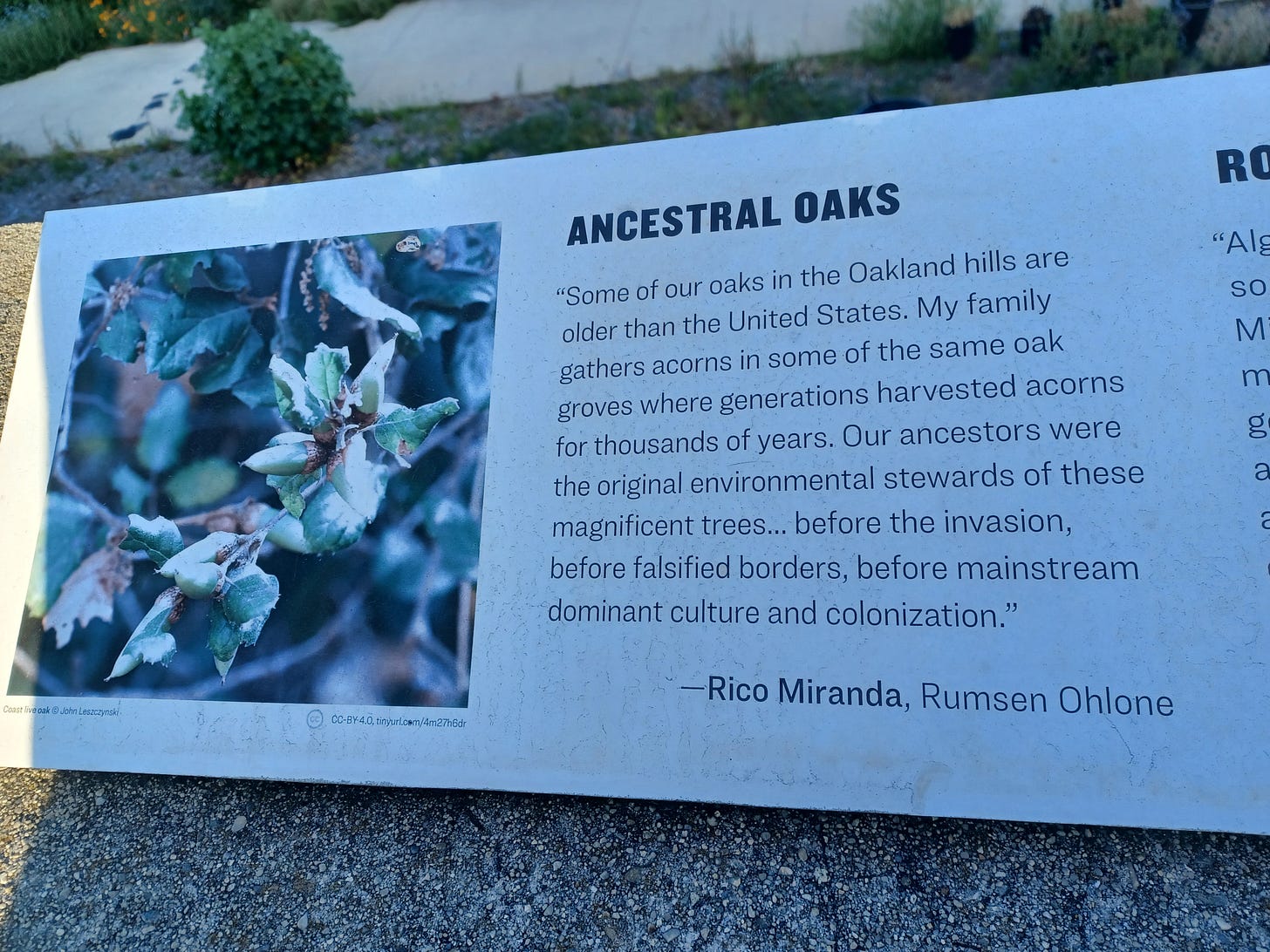
***
From the vantage point of 2024, I am laughing at my past self because I thought I had solved it. I thought I had ‘figured out my baggage about baggage.’ I was convinced that I was done!
Of course, all I had found was a new practice. I had discovered an antidote, yes, but one I would need to re-engage with each time I encountered a new wave of uncertainty about place or about my place in the world.
***
A green flag listed on a dating profile I see on Hinge:
”Healthy coping mechanisms”
Who’s to say what’s healthy and what’s not?
We all have mechanisms to try and cope with what we can not control.
***
I still periodically feel the itch to sort and organize and tidy and purge my belongings, to streamline the amount of stuff and the number of boxes I carry from place to place. This itch has been extra strong over the last few months, during my big out-of-state move, during another bout of housing insecurity, during this transitional time between homes, during an extended period of time when I am uprooting myself by choice (moving toward life, a full life: what me and mine have moved toward for generations…at least that I can be certain of).
I am more aware of this learned patterning, though. Can catch myself worrying about my stuff, and pause. To notice and to be curious.
Behind the impulse to purge is a lonely feeling I don’t want to feel.
Of who will (not) help me deal with all of my baggage.
Of who will (not) help me move my stuff.
Of who will (not) hold my hand as I work through it all.
Of who will (not) share my relief on the other end.
***
You cannot control who you lose how and when.
***
Can I trust can I trust can I trust can I trust
that there will always, yes always,
be a helping hand and a supportive shoulder,
no matter how much baggage I have
no matter how much I’m carrying around
from house to house in search of home.
***
[2024, out-of-state move, California]
You have three cardboard boxes in the back of a new-to-you used Prius with a trunk that won’t open. You’ve been driving around with the boxes untouched for weeks. A couple friends from your trans-local interspiritual community want to stop by your new sublet to say hi because they happen to be in town. They offer moving support. You ask them if they’re willing to help you move the boxes out of your car.
Each of you walks a heavy box (papers are always so heavy, and you always have ever so much paper) down the block up the front steps and up the stairs-stairs into your room. Everyone is slightly out of breath by the end of it, but that’s that for today until you get the rest out of storage (in a friend’s garage), until you get the rest out of deep storage (in a basement in Oregon).
There is a box labeled “Archives (close-at-hand)” in Sharpie. This is a box that should logically be in storage, that in past moves would have been put into deep storage, or at the very least could stay tucked into your Prius’s broken trunk without much bother. This box contains one childhood photo album, a box of photos from high school, a photo album of your dad during his first years in America, a photo album of your mom in her 20’s — with photos dated 1972, of her in Việt Nam. Loose-floating and wedged into the photo album of your dad is a series of photos taped together to become a panoramic shot of Pulau Galang Camp. Loose-floating and wedged into the photo album of your mom is a photo of seagulls in flight.
In the photo album of your mom is a black-and-white photo of her English class back in Việt Nam. One of her classmates is the father of your family friend Jimmy — who you grow up with in Houston, who you visit in high school on a family vacation to Dublin California, who you will reconnect with in Los Angeles in a few months time on your Migration Tour.
Your reconnection in 2023 is not nearly as improbable as theirs was in the 1980’s. How did your mom and his dad find each other again, after leaving Việt Nam on separate boats at separate times, after leaving the refugee camp on separate planes at separate times?
We cannot control who we lose, how or when.
But we also don’t know when or how we might reconnect with whom.
Sometimes the things we entrust into storage make their way back to us to make their way forward to the next generation.
***
This is the present-day pattern: This is some of what your mom left you, her daughter.
A handful of photo albums from Việt Nam
A predilection for hoarding empty bags, just in case
Faith in flight
Family friends to tell more of her story in bits and pieces. 濕濕碎碎.
Family friends and their kids (and some of their kids, too)
Coping mechanisms, all.
It is up to me which ones I keep.
Which ones I choose to carry from house to home to house to home to house to home.

